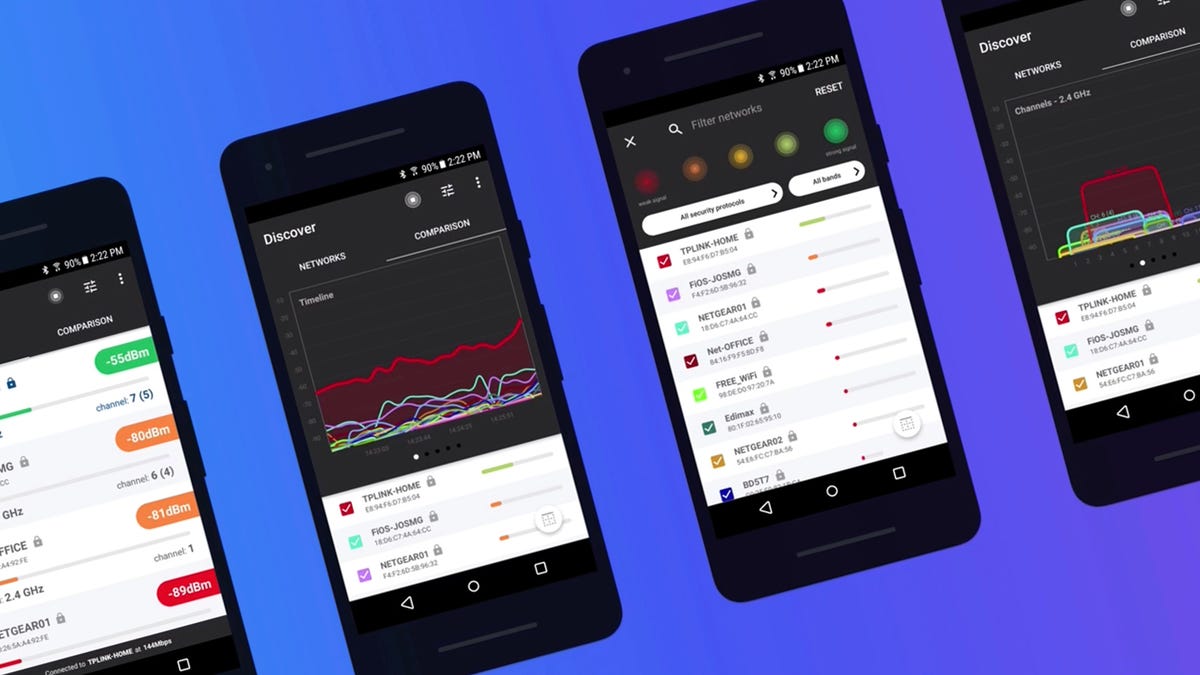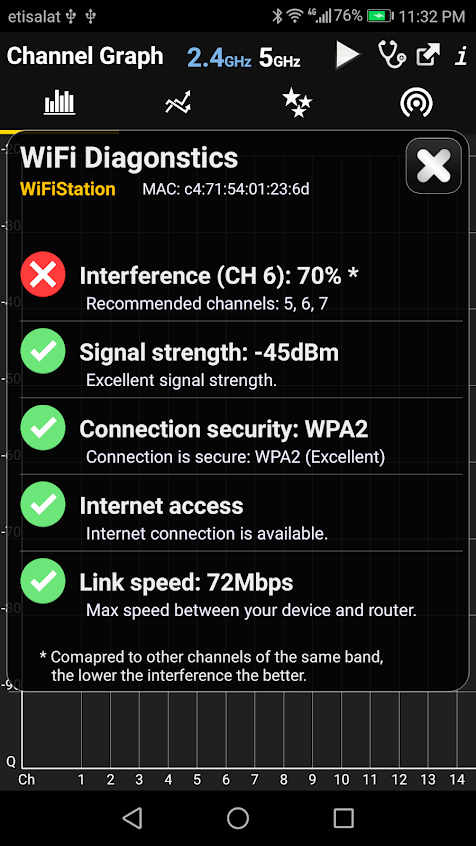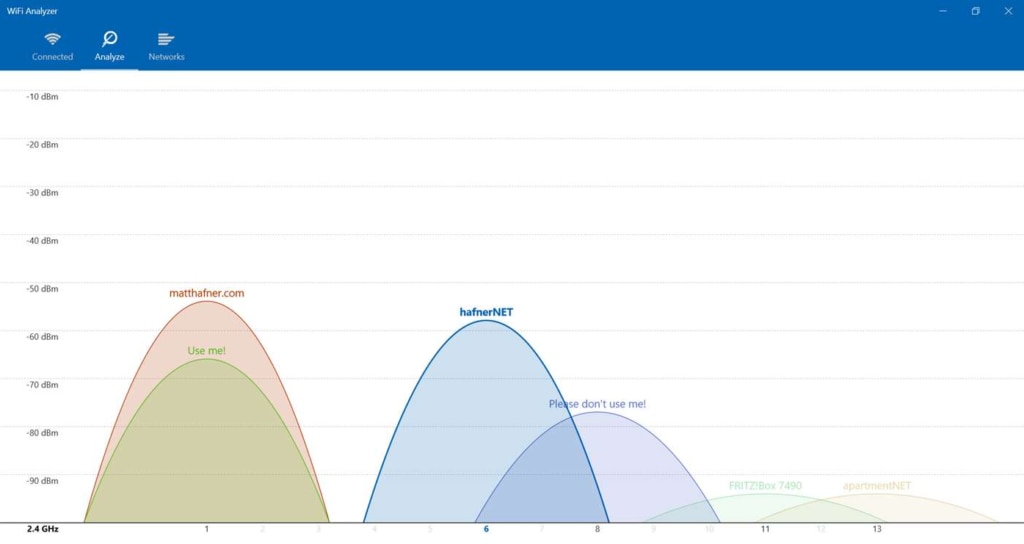

Do you go for the shoulder channels if all channels are being used equally with equal strength?ĭo routers set to auto channel select only choose between 1, 6 and 11? How do they make the choice? Do they select by choosing channel with lowest other routers and do they factor in signal strengths. Yes, if only 3 people were using Wifi, the best channels to use would be 1, 6 and 11 as they don't overlap but in practice, there are about 20 people using the channels in the same area. Is that right? People go on about the fact that only channel 1, 6 or 11 should be used (in US) as they don't overlap but surely that statement is wrong. If, for example, I had 11 routers sitting on top of each other, each set to a different channel, I'm guessing channel 1 and 11 would be the least interferred. What is the impact of signal strength compared to number of people using channel? If 1 person is on channel 1 with very high signal strength and 2 people are on channel 11 with low signal strength, do you choose channel 11 over 1? Assume 6 cannot be used? Q2: Signal Strength Weighted Against Number of People Is that the case? Does lower signal strength mean the person using it is further away and therefore less likely to interfere with your signal? If 2 people are on channel 1 and have high signal strength and 2 people are on channel 11 and have low signal strength, do you choose channel 11? Assume 6 cannot be used.
:max_bytes(150000):strip_icc()/WifiAnalyzer-5af33a3d1d64040036a67771.jpg)


If all channels are in equal use, do you select a channel where others that use it have the lowest signal strength? I'm guessing that a higher signal strength means that it's from a router from your closest neighbour and you want to avoid that. Assuming all channels are in use and there are about 20 different users in close proximity. I'm using inSSiDer, WiFi Overview 360 and Wifi Analyzer apps to try to determine the best wifi channel to use.


 0 kommentar(er)
0 kommentar(er)
